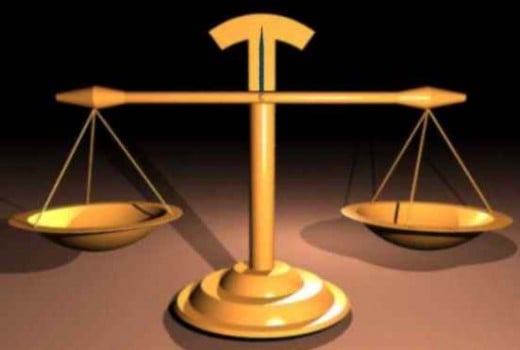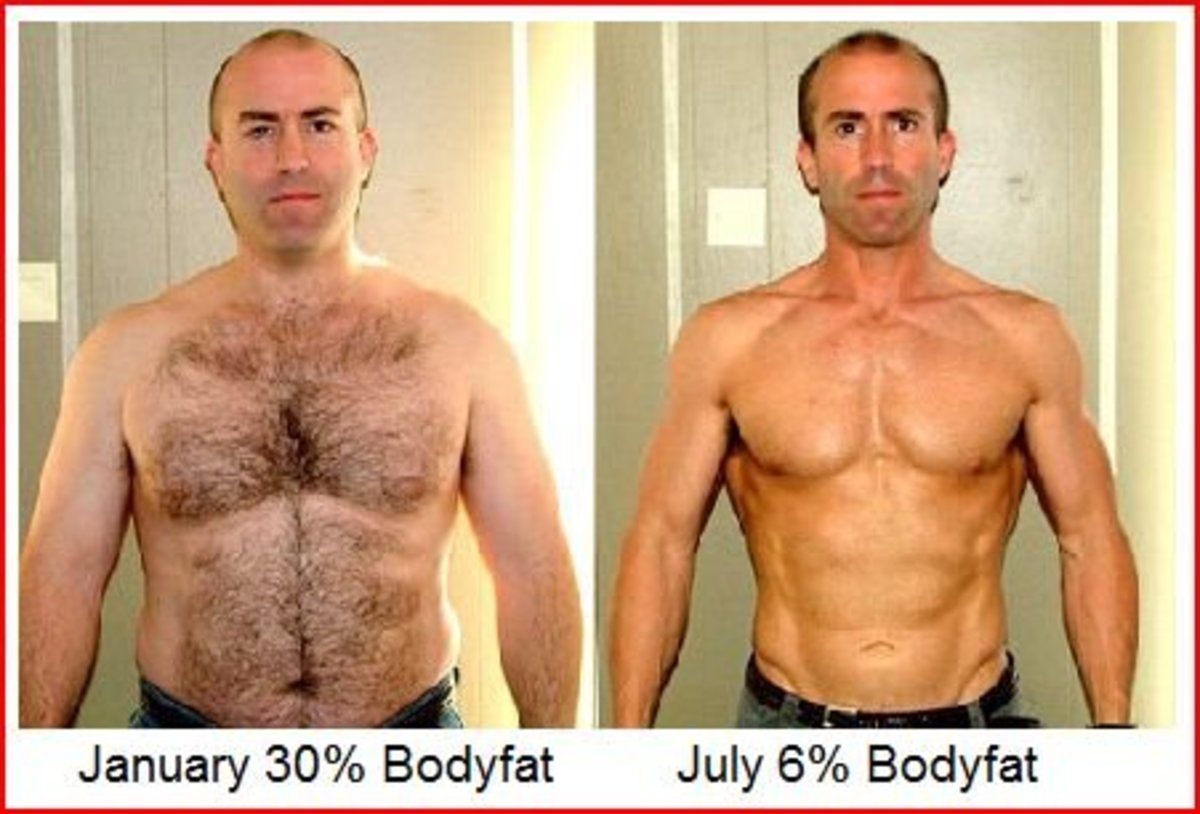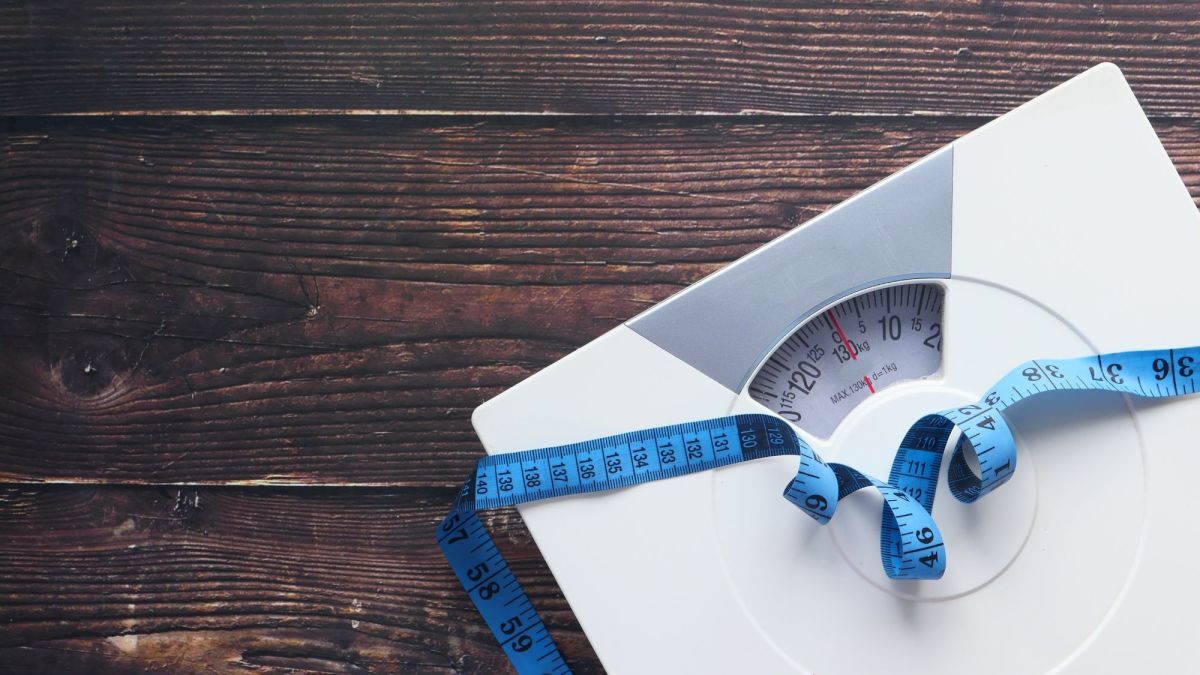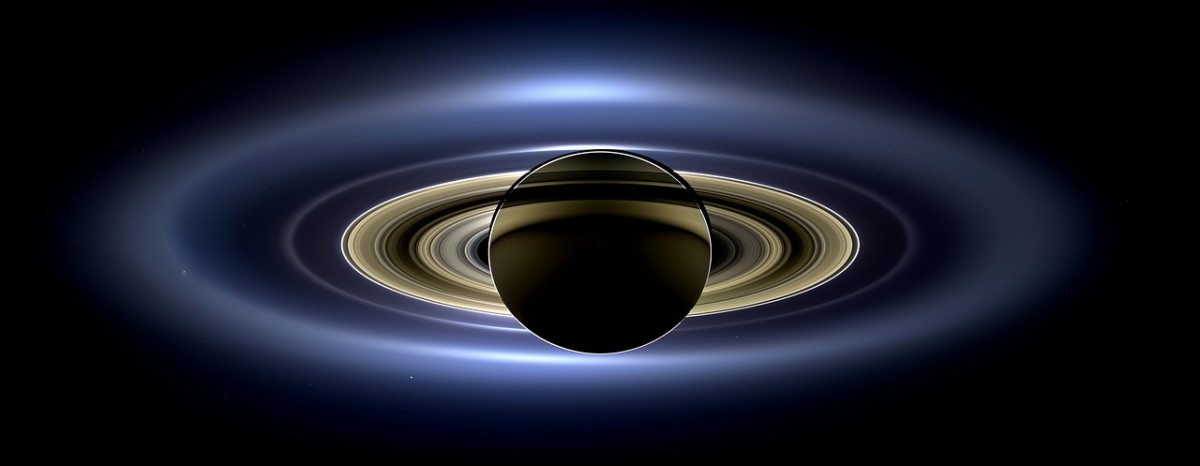How to Achieve Balance
We hear a lot about the need for balance in our lives, but often the things people say about balance indicate that they have no idea what balance is. Sometimes the need for balance is expressed in terms of not having "too much" of something. Balance in diet means not eating "too much". Balance in ecology is expressed in terms of not consuming "too much". Balance in the economy is expressed in terms of not earning or owning "too much." But how do we know what "too much" is, or "not enough" and how do we determine that something is "just right"? Often it is expressed in numerical terms: a certain number of calories, or of kilowatts or of dollars. But the moment we start thinking of it that way, we have lost sight of the original concept of balance.
Balance implies a natural equilibrium between countervailing forces.
Balance requires Equilibrium

When we first begin to study balance, we often use a simplified model where there are only two countervailing forces, as in the case of a scale. In a scale, balance is maintained when the weight on one side is equal to the weight on the other. However, in nature balance often involves many different forces that have a complex and dynamic interplay, and any change in one of them can have cascading effects on all the others.
The balance beam

Mechanical Equilibrium
According to the Wikipedia article on mechanical equilibrium: "The necessary and sufficient conditions for a particle to be in mechanical equilibrium is that the net force acting upon the particle is zero."
Roseate Tern

If you are a bird in flight, or the pilot of an airplane, you have to achieve balance in three dimensional space. That means that you must balance at least three different variables: roll, pitch and yaw.
Roll-Pitch-Yaw

In an airplane, pitch is controlled by the elevator, yaw by the rudder and roll by the ailerons.To keep your plane from spiraling out of control, it is not enough to keep the wings level. You have to use the rudder, too. In a controlled turn, rudder is applied in the opposite direction from which the ailerons are going, so as the achieve balance. To avoid stalling during a climb, you must not pull up too high, so you balance the lift of the wings with the attitude you select.. To avoid a dive when descending, you keep the nose higher than it would go if left to its own devices. Any change in one of the three dimensions requires a countervailing correction in at least one of the others.
Tarantula on a Human Hand: Thermal image

Biological Model of Balance: Homeostasis
So far, we have only been talking about a physical, mechanistic model of balance. Biological models are much more complicated and include more variables that balance each other out. An important concept in biology is homeostasis. Homeostasis is the "property of a system, either open or closed, that regulates its internal environment and tends to maintain a stable, constant condition." (Source: Wikipedia).
An example of a homoestatic system is a warm-blooded animal that maintains a constant temperature regardless of what the temperature is outside, what, if anything, it has had for dinner, and what its level of activity is at the moment. A human being is such a system, and it is this system that comes into play when the issue of weight maintenance comes up.
Calories
A calorie is a unit of heat. It is the controlling unit for the maintenance of body temperature. Under ideal conditions, a mammal will tend to maintain the same body temperature and the same overall weight, despite other variables such as ambient temperature, calories consumed and the level of activity that the animal has recently engaged in. The system adjusts other factors, such as metabolism, in order to maintain a stable state.
To be a healthy mammal means that your body maintains this equilibrium entirely on its own, without any conscious intervention on your part. The best policy, so long as this equilibrium is functioning, is laissez faire. Most mammals, including humans, have no earthly idea how the system functions, and the less they interfere with it, the better.
No Pilot -- and Yet It Flies
Unlike the example of how the airplane is kept in balance by a pilot, the homeostatic system has no central planner, no chief honcho, no pilot to guide the flight safely on its way. This is an involuntary, automated system that has evolved naturally to maintain balance in the organism -- for a time.
When the system breaks down, and it always does eventually, the balance becomes more and more difficult to maintain, until the result is death to the organism. This happens in many different ways, but it always happens eventually. If injury or disease does not cause it sooner, then the imbalances of old age will eventually snuff out the life of the organism.
No matter how well balanced a life we lead, we can't stay balanced forever. Anybody who offers us immortality in return for a lifestyle change is lying. But it is true that lifestyle choices can greatly curtail the period when we remain healthy and balanced. If the human maximum life expectancy is somewhere around one hundred and twenty years, it is always possible for it to be cut much shorter by actions that promote imbalance.
Many people are looking for a balanced lifestyle in order to promote long life and good health. While some of these people are quite extreme in their pursuit of "balance", most people equate balance with moderation. How wrong they are!
Moderation is Bad -- If Your Theory is Wrong
Why would it be wrong to exercise moderation in order to attempt to maintain balance longer? If not thinking about what you eat works pretty well, wouldn't a few calculations make the balance even better calibrated? A lot of people sabotage themselves this way.The fact is that "moderation" is not a theory-neutral concept. It depends on your theory of nutrition what constitutes moderation.
For instance, there are those who think that calories consumed are everything. That is their theory. They believe that they can change their weight by controlling the number of calories they ingest. If they continue to do the same things, only cut their caloric intake by a couple of hundred calories each day, then in the end they will lose weight. But does it work that way? No. What they really end up doing is slowing down their metabolic rate. The system has a set point. It will try its darndest to maintain stability in body temperature and weight. It will make adjustments in the less manipulable area of the caloric economy, and despite the change in diet, the weight will be maintained.
What about those whose theory is that fat is bad, but non-fat is good? Those people may decide that they'll cut down on fat and maintain a diet that consists of exactly the same number of calories as before. Since they think that body fat is directly related to dietary fat, they will shun foods high in fat and embrace those that are low fat. What will their body do in reaction to this policy? Foods low in fat are high on the glycemic index. They trigger a sugar spike and a release of insulin and induce hunger faster. Such people will end up eating more often and more calories, and will eventually risk becoming diabetic. If they hadn't had the anti-fat theory bolstering this behavior, they would have eaten less.
But isn't that cheating on your diet? What if the low fat people had insisted on sticking to the low-fat diet with the same number of calories? Well, then the body, sensing hunger and impending starvation would have lowered the metabolic rate, and again there would be a net gain -- or at the very least, no loss. (If, due to a lowered metabolism, a fat to muscle ratio shift occurs, the lower metabolism may become permanent, in which case the low fat dieters will have to consume even fewer calories to maintain the same weight. This sort of policy has the potential to spiral out of control and induce imbalance.)
What about somebody who decides to leave the diet alone, but embarks on a moderate exercise regimen in order to reduce weight by burning calories? The more you exercise, the more you will want to eat in order to regain the energy expended. If you don't eat as much as your body tells you to, the body will decide that it needs to lower your metabolic rate. Many of us who took up moderate exercise in the hopes of inducing moderate weight loss have been disappointed by the results. This expedient usually does not result in a greater imbalance, but there is no overall weight loss.
People who try to outsmart their bodies often end up outsmarting themselves. The automatic mechanism that maintains homeostasis will not allow us to cheat the system. Because there is no central control, there is nobody to bribe.
Conservation of Energy
There is, of course, the law of conservation of energy. Energy is neither created nor destroyed.This applies to all physical entities, including living organisms.
If you do cut down the calories consumed over an extended period of time without any opportunity to cheat and get more food, there is a limit to what the body can do in terms of reducing metabolic rate. You can't reduce your energy consumption to zero and still keep living indefinitely. Eventually weight will be lost, and if the starvation diet persists, the individual will die. This is a very unpleasant process and there is nothing moderate about it. It is not a good way to try to maintain balance. Even if the food supply is again replenished before death occurs, the consequences to the metabolic rate may be permanent.
Have you ever wondered what happened to conscientious objectors in the United States during World War II? Some of them were used as medical guinea pigs in experiments concerning changes to the metabolic rate when people are starving. In his paper Bodyweight Setpoint, Metabolic Adaptation and Human Starvation, mathematician Frank P. Kozusko describes one such experiment.
Kozusko develops a mathematical model for calculating daily energy requirements that includes the metabolic response to weight loss. He bases his calculations on data from the Minnesota Starvation Experiment. Under his model, calories have to be cut down even more with every drop in metabolic rate in order to maintain a constant rate of loss. Maintaining a steady low calorie diet will not lead to consistent weight loss results. He also admits that not all research subjects in the Minnesota experiment fit neatly into his model, and he speculates that perhaps deviations are due to original differences in body fat ratio prior to the experiment.
Restricting calories is a way to achieve loss that fights against the natural balance of the organism. The more you restrict the calories, the more the system will fight back and restrict the caloric consumption of the body at rest. To choose this path is to choose to be at war with your natural balance.
Changes That Move the Set Point
People do gain weight sometimes without intentionally changing their diet. People do lose weight sometimes, even though they are not on a calorie restricted regimen. If the naturally maintained homeostasis were some kind of unbreakable magic formula then this could never happen. When it does happen, here is what usually occurs:
First, something that seriously affects metabolism happens, then the set point is moved, and afterwards a shift in caloric intake comes into effect. For instance, many medications can lower metabolic rate. People who are on these medications start out eating and exercising just as before, but somehow don't burn as many calories. As the extra calories accumulate, weight is gained. After weight gain, the body's fat to muscle ratio changes, so that the metabolic rate is even lower. With the metabolic rate that much lower, people become lethargic and exercise less than before. They feel the need to maintain their current weight, so they eat an amount that prevents them from losing the newly gained weight. This scenario will eventually result in consuming more calories than in the original diet, but the consumption of more calories is a result of weight gain, not its cause.
Weight loss can occur if the body isn't able to metabolize the calories consumed. It can occur if instead of digesting them, the body excretes more of them. Weight loss can occur if the metabolism is speeded up, whether with drugs or due to a rise in the ratio of muscle to fat. Weight loss can occur when the same number of calories are consumed per day, but it takes longer to break them down into usable energy and more calories are needed to effect that breakdown. Eventually, after such a metabolic change has occurred and weight has been lost, the person, feeling a need for fewer calories to maintain current body weight, will start to eat less. The reduction in eating is usually the result of weight loss, not its cause.
If you are an overweight person with a sluggish metabolism, some things to try would be a low carb diet and an exercise regimen of lifting weights to build muscle mass. These expedients are calculated to shift metabolism, not control caloric intake or output directly. After metabolism changes, then the homeostatic system will take care of the calorie balance itself.
However, the point here is not that every imbalance can be fixed by the expedient of manipulation. The point is that inasmuch as your system works, you should not do anything to undermine it. My theory may be wrong. Your doctor's theory may be wrong. Your grandmother's theory may be wrong.There are so many variables to work with and making a miscalculation is easy. It is better to let the natural balance work, than to think that we can micromanage it. If it's not broken, don't fix it.
This means that instead of trying to virtuously tell our body what it should be doing, we should listen more to what our natural urges tell us we should do. Healthy people don't think about health. Balanced people don't think about balance. Achieving balance means allowing nature to re-establish itself.
Amish Work Hard and Eat A Lot

I recently read a hub about how the Amish live. It described both their work habits and their diet. The Amish eat a hearty, calorie rich diet -- the kind that most of us would never allow ourselves -- but they work very hard. Because of the physical labor in their lifestyle, they can afford to eat this much, and they do not become obese or even overweight. I wondered idly to myself, reading this, whether it ever occurred to them that they need not work so hard, if only they ate less. Of course, it was one of those silly thoughts that are based on a simplistic understanding of conservation of energy. Calories in, calories out. If only it were that simple! I then realized that it would probably not work out the way I envisioned, either in terms of metabolism or of economics. The forces at play are too many and too complex for me to know why, but the Amish probably are living their optimal lifestyle. If they worked less, it would not simply result in eating less. There would be so many other cascading repercussions that nobody could have predicted in advance, many of which might include reduced property ownership, less land per person and greater crowding.
Conclusion
An on-line friend who shares my faith in laissez-faire recently described his idea of how the economy is similar to a stable equilibrium. He suggested that everything would take care of itself, if only we didn't interfere, and that random fluctuations would not result in system-wide changes. My view is a little bit different. I see the economy as a dynamic system with a lifespan, much like a living organism. The life of the average human is not going to exceed its highest potential, no matter what lifestyle is chosen. However, by going against the natural balance, one can greatly curtail the lifespan. Many people are diabetic now, not because they followed their natural urges and ate too much, but because they followed the advice of physicians and ate the wrong things -- things they didn't even enjoy. They chose margarine over butter, cereal over eggs, feeling very virtuous about eating food that tasted worse. But these "virtuous" unnatural choices made them sick, and attempts to correct the problem made them even sicker.
Intervention in diet leads to trouble and more intervention until a thirty-year-old has the body of someone else at ninety. Economies and civilizations also have a limited lifespan. It would be unreasonable to expect the United States to remain young forever. It would be unlikely that America would remain a force to be reckoned with for more than a thousand years. Eventually old age and the depredations of a bureaucracy would have surely ended the life of this nation, and a new nation would have arisen as the next world power. However, the United States of America is less than three hundred years old, and thanks to interventions in its economy, it is as aged as a thousand year reich. One intervention has to led to another in rapid succession, and the barbarians are at the door!
Can the effects of aging be reversed? Can a natural balance in the economy be restored? Not so long as the majority don't understand what balance is.
(c) 2010 Aya Katz
Related Hubs and Links
- HOW DO THE AMISH LIVE?
HOW I MET TWO AMISH FAMILIES IS A LONG STORY AND NOT WORTH TELLING. SIMPLY SAID, I KNEW SOMEONE WHO KNEW SOMEONE. I have visited my Amish friends a number of times and have even spent the night in one... - Achieving Balance
Definition from Merriam-Webster Online Dictionary, paraphrased: Balance: A means of judging or deciding; stability produced by even distribution of weight; physical equilibrium; the ability to retain one's... - States of equilibrium-Stable equilibrium -Unstable equilibrium-Neutral equilibrium
- Flight dynamics - Wikipedia, the free encyclopedia
- Homeostasis
I recently got an A in my GCSE science and I would like to share with you my favourtie topic. It is called Homeostasis. This means maintaining a constant internal environment. It amazes me, mostly because... - Calorie - Wikipedia, the free encyclopedia
- Homeostasis - Wikipedia, the free encyclopedia
- http://www.springerlink.com/content/85g2132781980260/fulltext.pdf
This article describes a mathematical model for determining the equilibrium set-point for weight maintenance. - Best Way To Lose Weight After Quitting Smoking
Not only is what I am going to share here the best way to lose weight it is - in fact the only way to lose weight. Yes you heard me correctly there is only one way to lose weight and that is... - Get a Friend, Get a Passion, and Get Going for Better Health
I have worked out in on sense of another all of my life it seems like. As a child I grew up in Southern California and the weather was always nice so we spent our childhoods outside riding bikes,... - Punctuated equilibrium - Wikipedia, the free encyclopedia
- Thin People Don't Count Calories
I just attended a Prosperity conference where there was an amazing speaker, Raymond Aaron, who talked about a weight loss program he was in one that was so successful, hes kept the weight off for 15...








